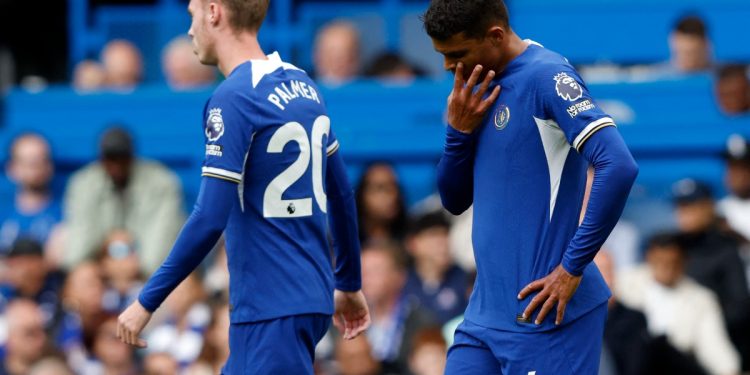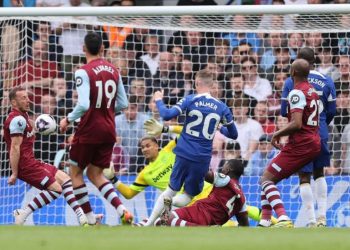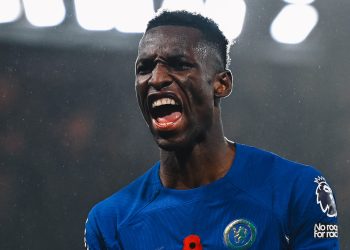Chelsea has many problems, and Mauricio Pochettino is one of them as are the owners, players, and everyone at the club.
For a club that has spent over a billion pounds on player purchases in three transfer windows, they look average and out of steam. They have appeared like a relegation side throughout 2023.
As a matter of fact, Chelsea Football Club has only managed to secure five wins in 2023; with three of those being home wins and two away. To make matters worse, they’ve lost 14 times in 2023, with only Bournemouth losing more (15).
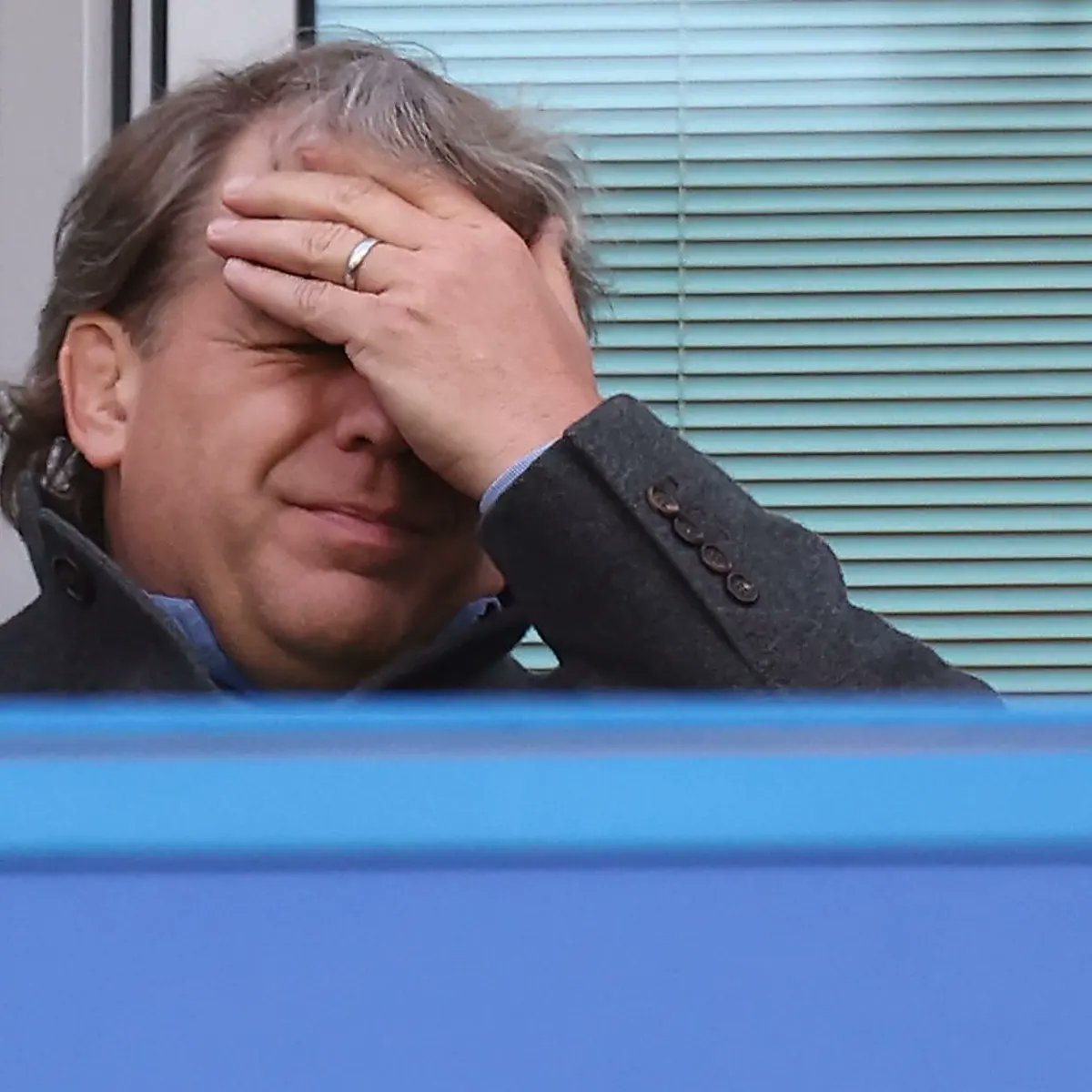
If you were Todd Boehly, you’d be annoyed too, considering that you’ve bought high-profile youngsters like Moises Caicedo, Enzo Fernández, Cole Palmer, Raheem Sterling, and Malo Gusto.
For many Chelsea fans, the boos at the end of the defeat to Aston Villa were a testament to how far the club had regressed, and the emotions of the club’s faithful are being disrupted, something they do not want.
WHAT IS THE VISION OF TODD BOEHLY/CLEARLAKE CAPITAL?
When Todd Boehly and his team took over the club on May 30, 2022, the feeling was positive. To the Americans, they had purchased one of the most successful football clubs in the world with the enormous potential to become the best football club in the world.
The consortium paid £4.25 billion to acquire the Blues from Roman Abramovich, with an agreement to invest an additional £1.75 billion to aid the club’s development. “Our vision as owners is clear: We want to make the fans proud,” Boehly said in a statement confirming the deal.
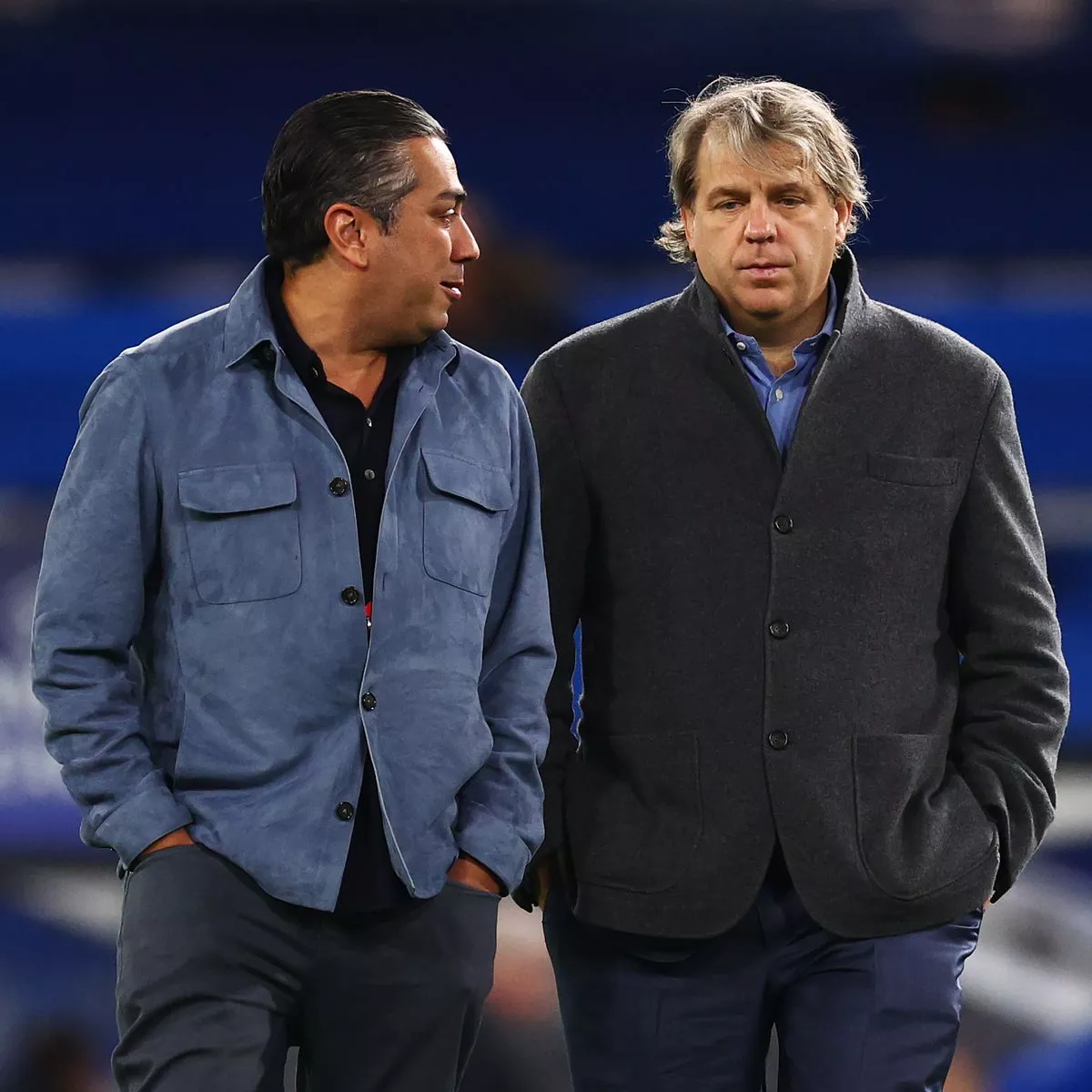
A year and several months later, there’s nothing to show for it except the firing of three managers, over a billion pounds spent, and a display of relegation form.
This is my issue with the owners; you cannot buy amateurs, albeit talented, and expect them to compete for trophies. To compete at the highest level, you cannot rely on inexperienced players to take you all the way and compete with proven winners like Liverpool, Manchester City, Arsenal, and even Manchester United although they have their own issues.
Another issue is the manner in which they’ve sold first-team players. One would have thought that the likes of N’Golo Kante and Matteo Kovacic would have stayed to serve as guides for Enzo Fernández and Moises Caicedo, but no. They have been let go.
I do understand the rationale behind the mass clearance because a lot of new players have been brought in and there is the need to balance the finances especially as there were players on huge salaries. In the business world, that makes perfect sense but in the world of football, the absence of experience is beginning to show because there’s a deficiency in leadership in the squad.
Let’s face facts: buying 31 footballers in three transfer windows is not a good look; it shows a lack of direction. Why do you need thirty-one to solve a deficiency or reach a goal?
MAURICIO POCHETTINO
The Argentine knew the problems at Chelsea FC before taking up the job, and he was under no illusion about the team’s deficiencies. He saw himself as the man to turn things around.
His appointment as coach was seen as the start of something good, a breath of fresh air and the restart the new owners desperately needed after a horror show in the first year of their takeover.
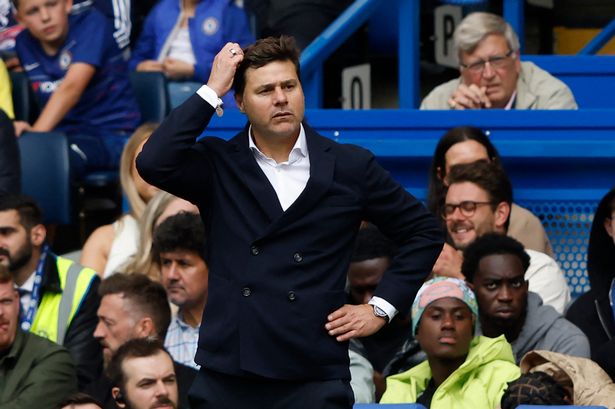
However, this appointment has looked wobbly at an early stage. Chelsea looks dysfunctional and there seems to be no direction and identity and frankly, one win, two draws, and three defeats in six matches is not what Chelsea has represented in the last 20 years or so.
Permit me to break this down even further:
Chelsea has won just one of their opening six games in a Premier League season for the first time since the 2000/01 campaign under Claudio Ranieri, while they have suffered three defeats in their first six games for the first time since 2015/16 under Jose Mourinho.
The struggles of Chelsea did not just start under Pochettino; the genesis is from Graham Potter. Since Potter won his first two Premier League away games (against Crystal Palace and Aston Villa in October 2022), the Blues have only managed two further victories across 16 away matches in the competition with five draws and nine losses.
Pochettino’s away record is so bad that it cost him the Premier League trophy when he was the Spurs manager. That’s how bad it is, and it doesn’t seem to be changing anytime soon. In his two away games for Chelsea this season, he’s picked up one draw, playing 0-0 with Bournemouth at the Vitality Stadium and suffering a 3-1 defeat against West Ham.
Under the former PSG manager, the Blues started the season with a three-man defence that had been in place since Antonio Conte’s time. The game against Liverpool had Axel Disasi, Thiago Silva, and youngster Levi Colwill in the rear guard to match the Reds in a 1-1 draw at Stamford Bridge.
The same trio started against West Ham, where they lost 3-1, and the same backline was maintained against Luton Town, a match they won 3-0 thanks to a Sterling brace. In fact, he stuck to the same trio in the 1-0 defeat to Nottingham Forest before switching to a back-four against Bournemouth and Aston Villa.
Pochettino somewhat favours Levi Colwill as his left-back option, which limits him in attack. This is a bit strange because with Ben Chilwell, he has another outlet in attack, whereas with Colwill, he does not.
Preferably, everyone knows Pochettino favours a flat four at the back with his fullbacks moving up and down. At Spurs, he had Danny Rose and Kieran Trippier, and at PSG, he had Kurzawa and Florenzi to do that job.
The problem with Chelsea is that it is obvious Pochettino does not trust Ben Chilwell enough due to his defensive frailties, but that should not be a big deal because most of the time, his side will dominate games. Maybe using Levi Colwill instead of Ben Chilwell is a tactic he is deploying from Pep Guardiola’s playbook, where center-backs have been played as fullbacks and even as midfielders. This seems to be working in a way because they have conceded five goals in four games.
However, with the 20-year-old at left-back, they have conceded just one in two games. This may be progress defensively, but it’s not contributing much in attack, and that’s where Chelsea needs urgent attention.
With Nicolas Jackson suspended for the next game and Armando Broja back in the team after a long injury layoff, the 51-year-old must act swiftly to solve this attacking crisis.
With Fulham away next on the schedule, one would expect Mauricio Pochettino to show up and secure his second win of the season.
TIME FOR ENZO AND CAICEDO PARTNERSHIP
I think Enzo Fernández is being played out of position, and it is quite evident. In all the games the Argentine played at the 2022 FIFA World Cup, Enzo Fernández was never used as a number 10, as we are seeing him used by Mauricio Pochettino.
He may not have been the best defensive midfielder at the World Cup, but he was very efficient in his role. It was enough for him to be named the Best Young Player of the tournament in Qatar.
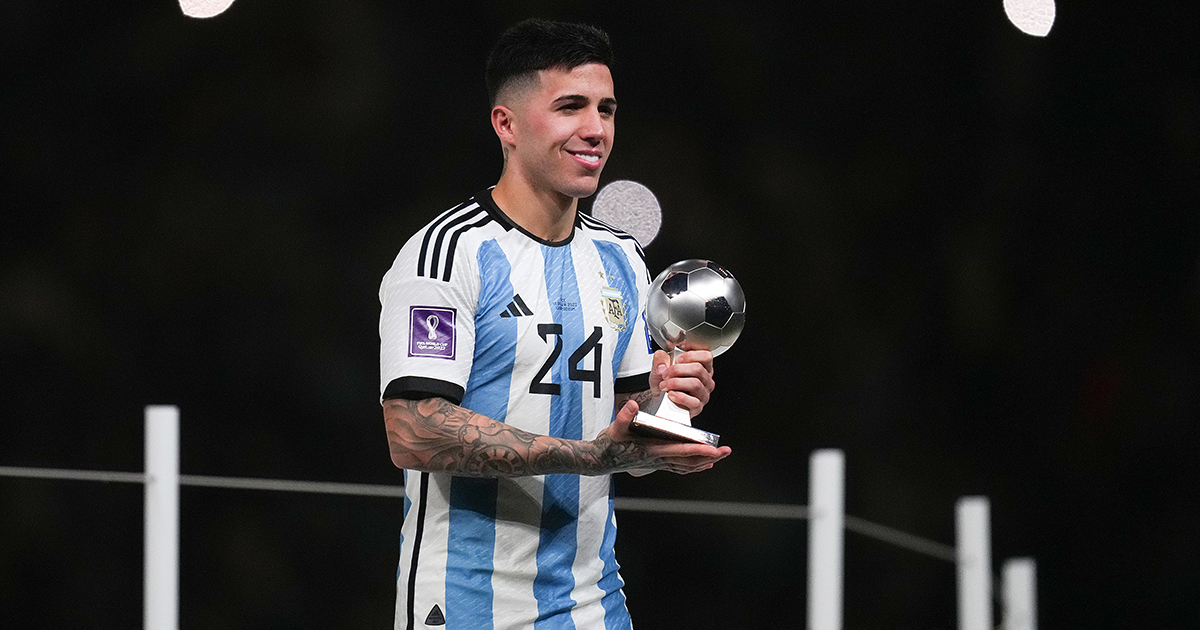
He won 15 tackles, blocked 7 shots, made 3 interceptions, and seven clearances, and had 535 touches at the World Cup in seven games, with 39 recoveries. All of this was achieved as a defensive midfielder, often paired with either Leandro Paredes or Rodrigo de Paul and Alexi MacAllister in a midfield trio. Whichever way he was deployed, he was never made to be the chief creator for Argentina.
At Chelsea this season, he has been given the responsibility to be the main creator. He is attempting more shot-creation actions per 90 (5.15) than he did the whole of last season (4.42) or in any football season in his entire career.
Furthermore, he has 526 touches this season, which is about one-third of what he had the whole of last season (1616). Similarly, he is attempting to take on players more this season, attempting 9 dribbles, which is one-quarter of what he did the season before. He has also crossed the ball more this season (27) than he did last season (14).
Enzo Fernández has had more touches in the opposition penalty area more times this season (12) than the last campaign (9). He has played 8 through balls this season, three less than what he managed in the 2022/2023 campaign. This goes to show that his role at Chelsea has changed. This is partly because Mauricio Pochettino is forcing a place for Connor Gallagher, who is favoured to partner with Moises Caicedo in the middle of the park. Even when Enzo Fernández partnered with Gallagher in the midfield, the Argentine was favoured to make more runs towards goal.
In 507 Premier League minutes this season, the 22-year-old is yet to register an assist, which is poor and goes to show that either he is not putting the balls in the right places or he is just not a creator.
I believe his best position will be in central midfield with Moises Caicedo, where he will operate as either a proper no. 6 or a no. 8. This will allow him to carry the ball more, help Caicedo in breaking the lines, and provide a shield for the defence.
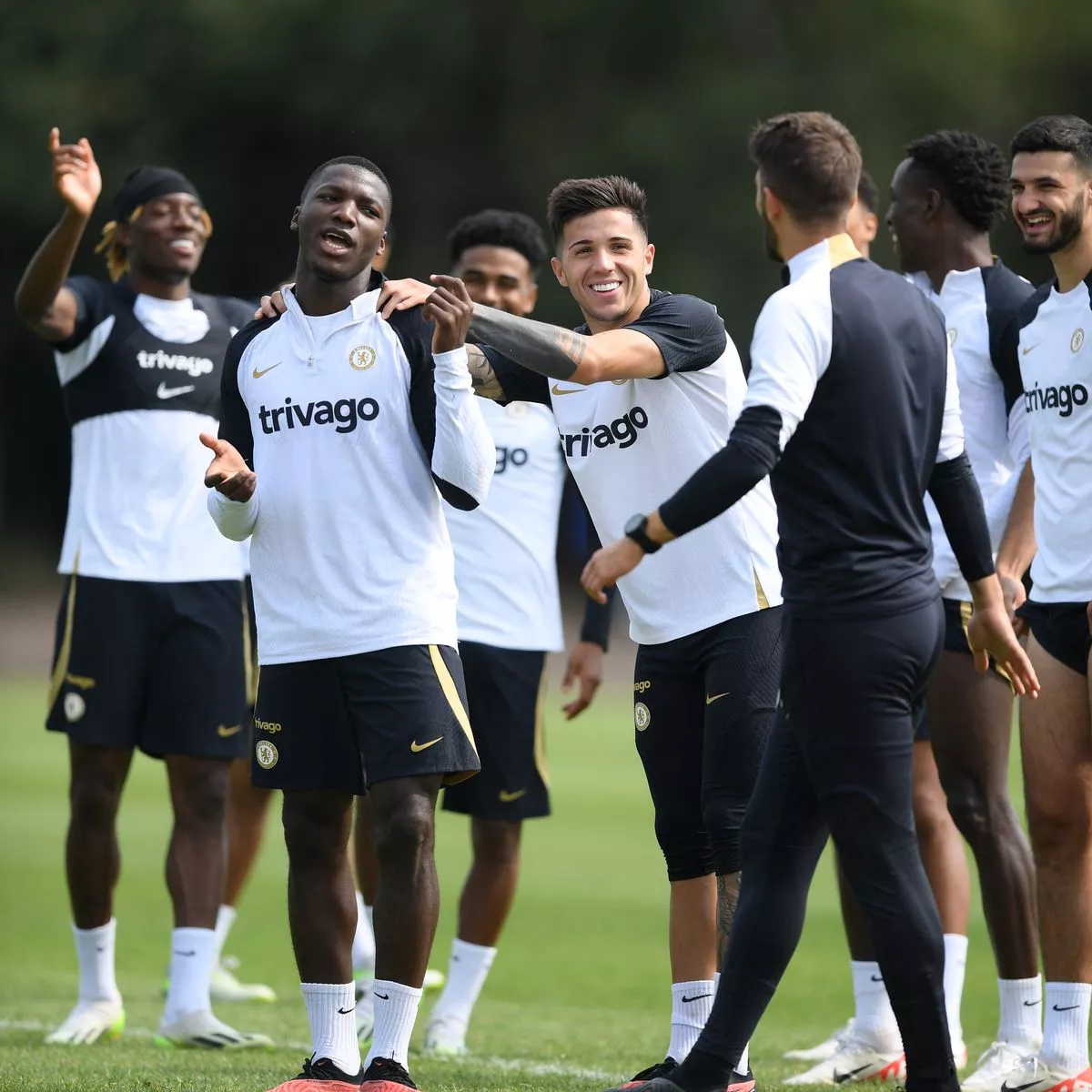
As a matter of fact, I believe Cole Palmer will do a better job as a no. 10 than Fernández, but that is a story for another day.
NICOLAS JACKSON IS STRUGGLING
The biggest problem at Chelsea is that Nicolas Jackson is struggling, and those around him are not stepping up.
The less said about Mykhailo Mudryk, the better. As for Raheem Sterling, it is becoming more evident with time why Gareth Southgate prefers others to him in the England national team. He may have scored two goals in six games this season, but he has been largely ineffective as the team has underperformed, especially in attack.
Per the data, Jackson has an expected goals haul (xG) of 3.8, but that has translated to only one goal this season. Also, for a striker to take 15 shots and have only 5 on target is poor, as that is a 36% success rate. When it comes to shot-creation actions per 90, he averages 3.18, and really, he should be doing better at scoring because his movements are okay. He has 123 touches in the final third of the opposition and 34 touches in the penalty box.
But let us be honest, Nicolas Jackson is not that striker who will score 20 goals a season, at least not yet.
Ultimately, Chelsea’s problems are not just about results; you have to consider their performance.
They are doing all the right things except scoring goals. In their six games, Chelsea has under-performed their non-penalty expected goals (npxG) by a margin of 5.7 — scoring five non-penalty goals from an npxG figure of 10.7.
There is a glimmer of hope, though.
The team will eventually come good, and when that time comes, they will be dominant because the ideas are there, but it is the final piece of the jigsaw that is missing: goals.






